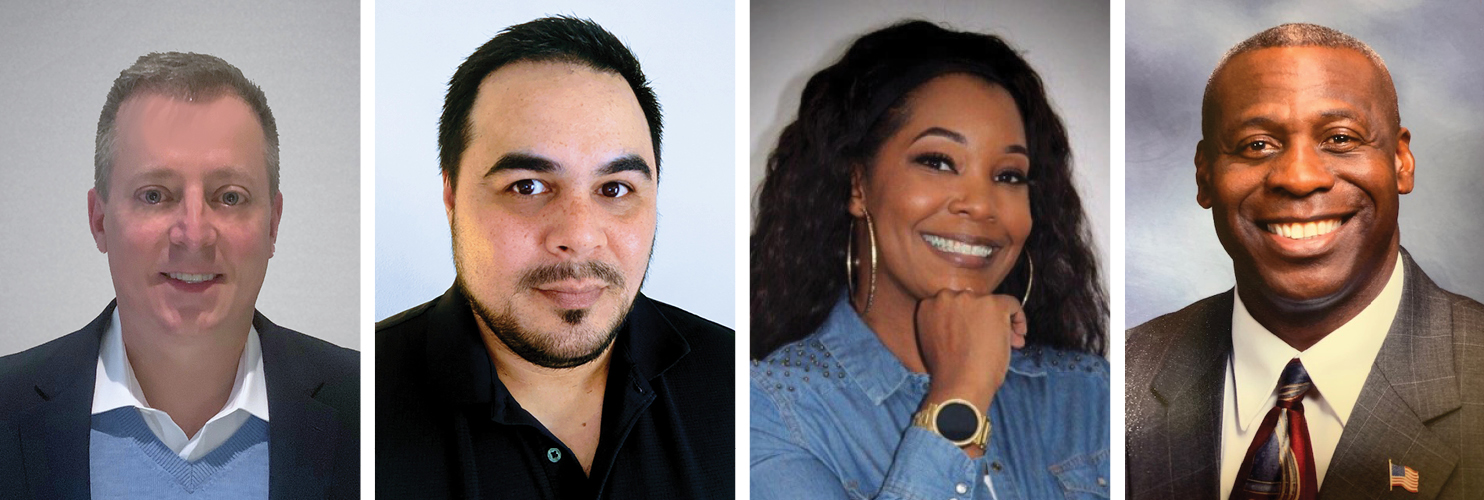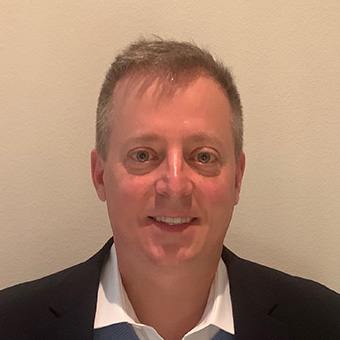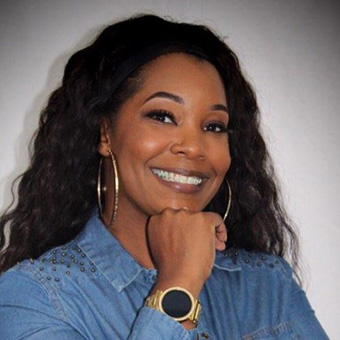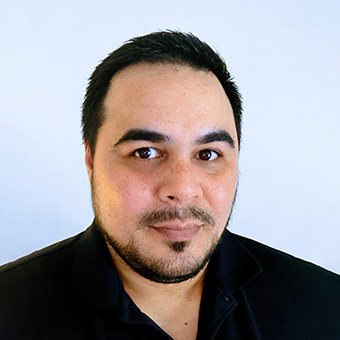Military Appreciation Month Spotlight
Transitioning from the military to financial services

We’re committed to helping veterans successfully bring their military experience and passion for service to our organization, particularly when we have the honor of being their first private sector employer. Our customers and communities benefit greatly from the perspectives, commitment, and drive to succeed that our veteran team members deliver, and we’re proud to play a vital role in their lives as they transition to the civilian workforce.
Helping smooth this transition is one goal of our Veterans Employee Resource Group (ERG). Four ERG members describe their journeys to serving our customers after serving our country.
Getting In
A native of Dalton, GA, Brent Crider was the first in his large family to join the military. “My mom was one of 17 kids. My dad was one of 11. I wasn’t ready for college, so my dad recommended the Air Force.” The Air Force recruiter suggested Brent consider a career in intelligence.
In another corner of the Peach State, Anna-Marie Favors Yearby grew up in foster care and was later adopted. By the time she got to high school, she says, “I had a desire to be more self-sufficient, so I participated in JROTC.” After starting with a National Guard military police unit in Monroe, GA, she transferred to the Army Reserve as a unit supply specialist.

Born in Salinas, CA, Richard Quiñones glimpsed his future in the form of a uniformed man at a diplomatic reception in Turkey, where the Peruvian government had posted his father, a Peruvian Air Force veteran, as consul general. “My father told me the man was a U.S. Marine. I decided I would one day wear that uniform.”
Around the time the world was welcoming the future Marine, and a continent away, Will Grant was in his high school auditorium in Sumter, SC, telling a U.S. Army recruiter that he enjoyed the outdoors. “I’ve got just the job for you,” the recruiter replied, “and $2,500 if you sign up today.” Will spent 32 years rising through the ranks of the Infantry, eventually becoming Division Command Sergeant Major for the storied “Rock of the Marne,” the 3rd Infantry Division at Ft. Stewart.
Getting out... and challenges
When Brent retired after 22 years in the Air Force, he transferred his expertise in intelligence to a civil service job relatively smoothly. The transition to the private sector was bumpier terrain. “When I applied for my job at Citi, like a lot of veterans, I didn’t have a resume. In the military, your record speaks for itself.”
About a year before Will Grant retired, a longtime Army civilian employee at Fort Moore asked him if he was interested in a civil service position at the base. Will thanked her but felt working as a civilian on base would be too much like still being in the Army. He wanted to do something different. The employee asked Will if he’d thought about going into banking. “Not exactly,” Will said, “but I’m an infantryman. If you teach me, I can do it.”
Anna-Marie worked full-time during her eight years in the Army Reserve, mainly in call centers and healthcare. “I noticed that my managers didn’t always seem to understand why I couldn’t take a particular weekend shift or why I had to be off for two straight weeks each year for training.” More than the logistics, she says, “I’d outgrown my job at the nursing home. I knew the Army had given me leadership skills that I wasn’t getting a chance to use.”

When he completed his tour in the Marines, Richard’s return to civilian life wasn’t hampered by anything hidden but by a military bearing that, for some people, was all too evident. “It was an adjustment. It was hard. I had to learn not to be so gung-ho. I had to learn how to smile again.” While he hadn’t expected his career path after the military to include a stop in an AT&T call center, “That was where I found my passion for customer service.” Still, he recalls his transition out of the service mirrored his divorce. “It was terrifying. I’d always had some sort of compass, but now I had no guidance.” The absence of a local support network didn’t help. “My fellow Marines were still my band of brothers. But they were serving all over the world.”
Path to Synovus
Brent’s intelligence background turned out to be a natural fit for helping Citi and other organizations comply with the federal Bank Secrecy Act of 1970 (BSA), which requires U.S. financial institutions to assist the government in preventing money laundering. “One thing I learned in intelligence is, the money always leads you to the target,” says Brent. After Synovus acquired Florida Community Bank, Brent was recruited to help align the combined financial institutions around a single set of operating principles.
Richard and Anna-Marie similarly heard about openings at the bank from fellow service members they’d kept in touch with, who understood the breadth of their skills. “Friends come and go all the time,” states Anna-Marie, “but military friends are forever. You’re friends for life.”

Will’s path toward banking and Synovus went through a conversation with John Mitchell, then an executive at Columbus Bank & Trust and a retired Army colonel. Will ultimately returned to Fort Moore to manage the two Synovus locations on post. One branch is in the commissary, and the other is in the headquarters of the 30th Adjutant General (A.G.) Battalion, where newly arrived future soldiers often set up their first checking accounts. Serving customers from this vantage point has given Will a deeper appreciation for a part of the military community he already admired. “The Army isn’t just made strong by the soldiers. It’s the spouses, too. They turn out to be the financial wizards because they run the household while the soldier is off fighting.”
What other veterans should know
Will encourages other veterans to consider a career in financial services, a field he thinks naturally overlays with the training he learned in the Army. “Financial planning, when it’s done right, is systematic, principled, and methodical. It’s been fruitful for me.”
Anna-Marie has seized opportunities to put more of her leadership skills to use to maintain morale among her customer service teammates. She has organized them to adopt a local family and support nonprofits such as Project Safe, based in Athens, GA, which works to end domestic violence. While she put reenlisting on pause when Synovus promoted her, she still recalls with a laugh broaching the subject with her supervisors. “I got more support at Synovus for my possibly reenlisting than I did from my employers when I was actually in the Reserve!”

Richard, also in customer service, admits that as the newest to Synovus of the four, “I’m not that high up in the company.” So he was glad to jump in to build up the Veterans ERG, a place where neither his rung nor his rank mattered. “All the executives who are veterans are just like you. It’s a true community. After the Marines, I consider them my second family.”
“Veterans simply want to know what their role is in the mission,” says Brent. “Once they know that, they will fight, scratch, and claw to make the mission a success. If you invest in shaping and molding them, they will amaze you. All the time.”
Military Appreciation Month at Synovus
We salute and celebrate the courage and commitment of our military team members and honor those who’ve served and sacrificed for our country. See our commitment to matching military expertise with available career opportunities in the financial services industry.